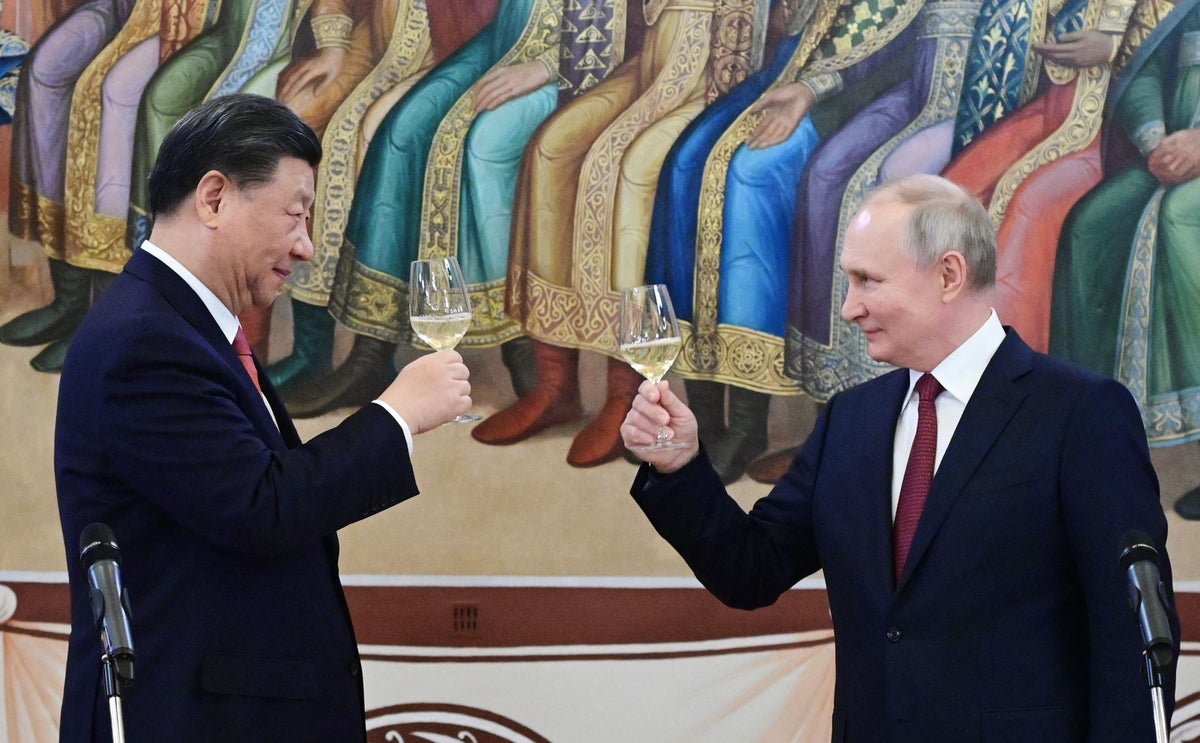
Vladimir Putin has accepted an invite from Xi Jinping to visit China for a Belt and Road Summit being held in October in his first known trip abroad since an arrest warrant was slapped against him for the deportation of children from Ukraine.
The Russian president recently met North Korean dictator Kim Jong-un and is looking to cement ties with a handful of allies after being isolated on the world stage due to his invasion of Ukraine.
Russia and China are “integrating our ideas of creating a large Eurasian space”, Mr Putin said, adding that the Chinese-led Belt and Road initiative is a part of that.
He announced his intention to visit Beijing after a meeting with Chinese foreign minister Wang Yi, who is in Moscow this week for a strategic diplomatic visit.
Mr Putin told the top Chinese diplomat that the Belt and Road strategy “fully meets and coincides” with Russia’s interests, according to a statement by the Kremlin.
He will be attending the summit in Chinese capital Beijing.
“We believe in merging our vision of creating a Greater Eurasian space with the idea of our Chinese friends as part of the Belt and Road Initiative, and we have been quite good at synchronising our efforts,” he said.
After invading Ukraine in February last year, Mr Putin has increasingly relied on seeking support from his allies in Asia, prominently China and North Korea. Russia has also amped up trade with China by selling it more energy and showing diplomatic bonhomie by carrying out joint military exercises.
The talks in Beijing will be thorough, said Nikolai Patrushev, a close aide to the Russian president and the secretary of Russia’s Security Council. He said Russia and China should deepen cooperation in the face of the West’s attempt to contain them both.
Both countries also have strained relations with the US, with Mr Xi briefly becoming the only foreign leader to have paid Mr Putin a visit in Moscow until recently, when Mr Kim revelled in his own six-day sojourn to Russia’s far east.
A flagship initiative of Beijing, the Belt and Road project has been a key prospect for China to expand its influence in developing countries through infrastructure projects.
On the continuing war in Ukraine, China has shown a neutral stand and has gone to the extent of criticising Western sanctions against Moscow and the arming of Kyiv by several Western nations.
It also accused Nato and the US of provoking Russia’s military action and declared last year that it had a “no-limits” friendship with Russia.
Earlier this year, CIA director William Burns said Russia was becoming more and more dependent on China and was even at risk of becoming its “economic colony” in time.







